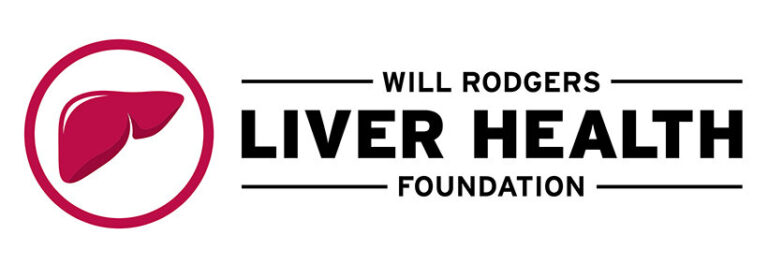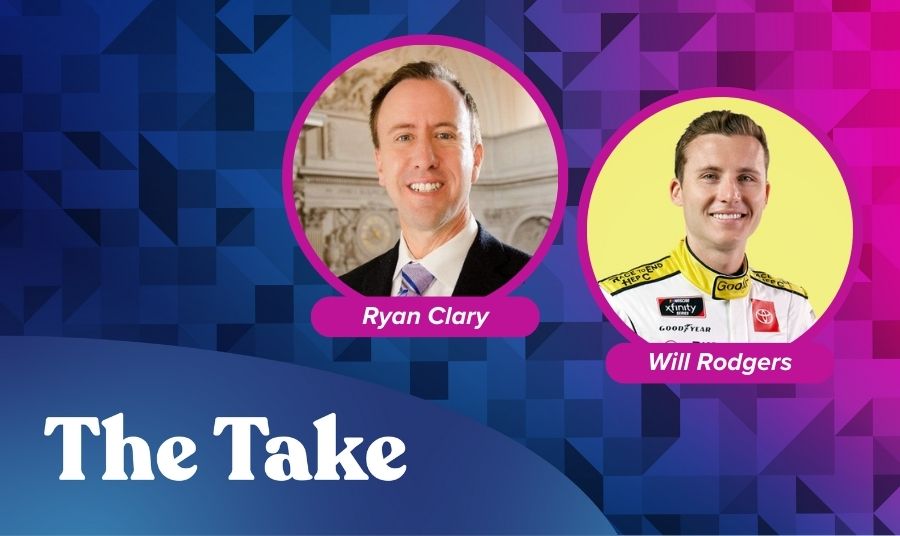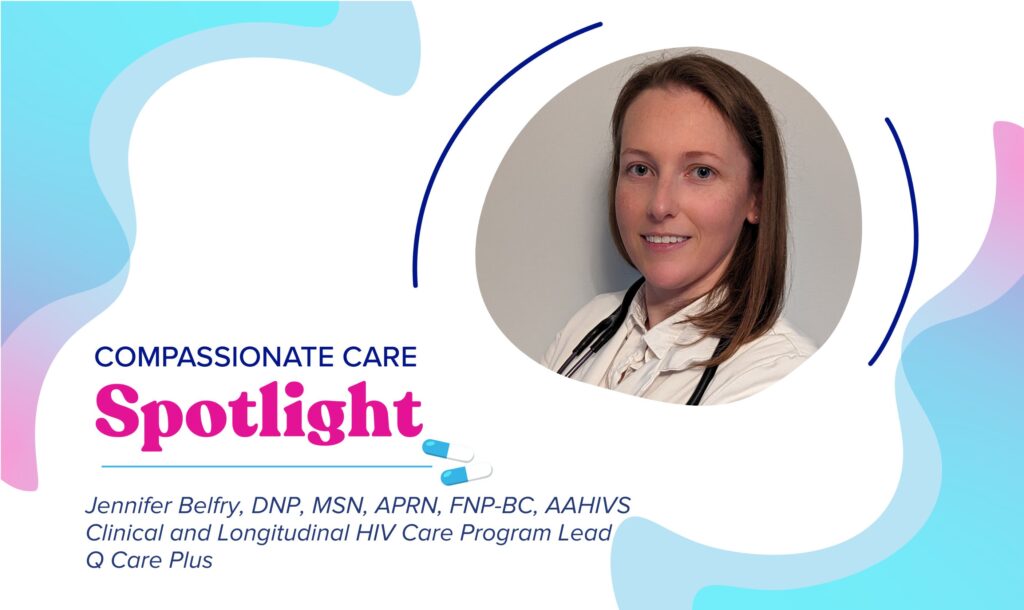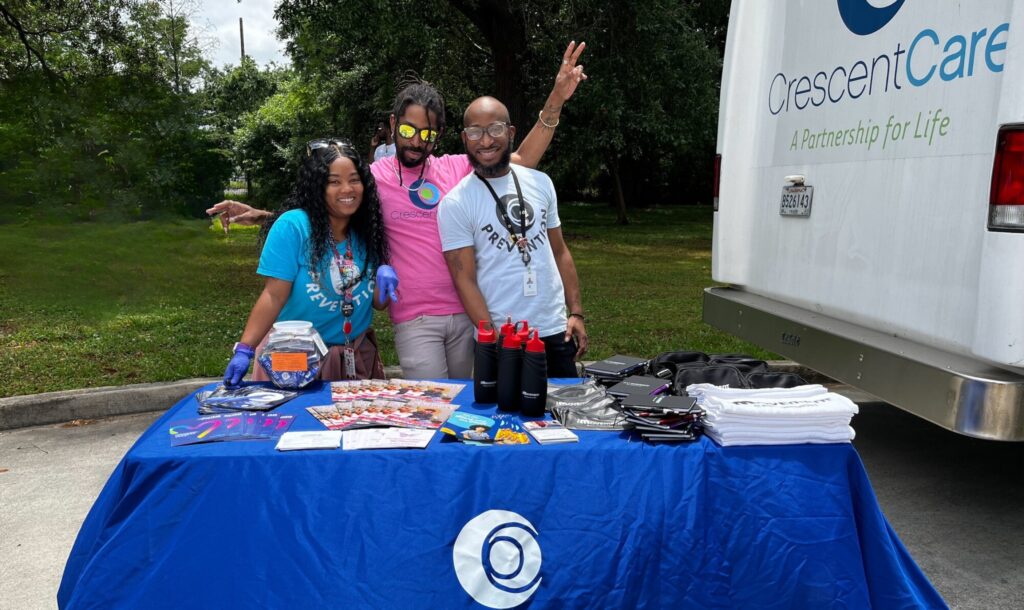According to the U.S. Centers for Disease Control and Prevention (CDC), more than two million Americans—and counting—are living with hepatitis C (HCV), a virus with serious and even deadly outcomes to the liver if left untreated. Yet, despite the availability of highly effective treatments, only one out of three people in the U.S. diagnosed with hepatitis C are being cured. To add fuel to the fire, up to 75% of those living with chronic hepatitis C are not even aware they are infected.
Avita Chief Advocacy Officer Glen Pietrandoni sat down with Will Rodgers, a NASCAR driver and motorsports champion, liver disease survivor, and founder of the Will Rodgers Liver Health Foundation, and LGBTQ+, HIV, viral hepatitis, and health care advocacy expert Ryan Clary to discuss the White House’s proposed National Hepatitis C Elimination Plan, what’s slowing down the momentum of the fight to end Hep C, finding non-traditional ways to test, educate, and reduce stigma, and more.
More than two million Americans—and counting—are living with hepatitis C (HCV), a virus with serious and even deadly outcomes to the liver if left untreated. Yet, despite the availability of highly effective treatments, only one out of three people in the U.S. diagnosed with hepatitis C are being cured.
The status of the Hepatitis C Elimination Plan
GLEN: Thanks to both of you for chatting with me today. To kick things off, let’s talk about the status of the White House’s Hepatitis C Elimination Plan. For readers unfamiliar with the initiative, the administration has proposed a budget of more than $11 billion over the next decade to eliminate hepatitis C in the U.S. What’s the inside scoop?
RYAN: Former Director of the National Institutes of Health Dr. Francis Collins developed this plan as a key advisor to President Biden. Advocates have been crucial in offering input into the plan and urging Congress to support it. There are three key priorities: Treatment access, bringing new diagnostics to market, and developing and strengthening the infrastructure of the existing care delivery available. The initiative includes identifying non-traditional service localities and projects that could reach unique populations.
The framework of the plan was released in March of 2023. Now, it’s Congress’ job to turn this into legislation, fund it, and get the President to sign off on its implementation. Advocates are working at all levels to try to make this happen.
The initiative has a high price tag, but studies have shown that it pays for itself over ten years by reducing hospitalizations, liver transplants, and costs associated with advanced liver disease. And, of course, by saving lives.
It’s the most exciting opportunity for hepatitis C advocates—and, most importantly, people living with or at risk for hepatitis C—to gain meaningful leadership from the federal government.
The framework of the plan was released in March of 2023. Now, it’s Congress' job to turn this into legislation, fund it, and get the President to sign off on its implementation. Advocates are working at all levels to try to make this happen.
Ryan Clary, Hepatitis advocacy expert
What’s the hold-up when it comes to eliminating hep C?
GLEN: When we talk about hepatitis C elimination or HIV prevention, we always say we have the tools, but it comes down to funding for outreach and treatments. Do you think the hep C initiative’s price tag is slowing it down?
RYAN: There are a few reasons. Many members of Congress will look skeptically at any new initiative with a relatively high price tag, particularly in this environment where we’re attempting to reduce the budget.
But more importantly, there’s a lot of stigma around this disease. People who use drugs make up one of the communities that are heavily impacted by this latest wave of hepatitis C. And we know there’s often a tendency toward a punitive response instead of looking at a human approach to public health.
Finally, there might be some disease-specific fatigue. It’s wonderful that HIV has received the level of support and funding it has. However, with that plus the Affordable Care Act (ACA) in place, I think many members of Congress—some on the more conservative side—feel that health care has been taken care of, so why invest all this money into one disease area? That’s not how to approach a public health threat that can be eliminated. The people hit hardest are uninsured or underinsured and thus not as connected to the healthcare system.
WILL: I agree wholeheartedly. It’s hard for legislators and the President to see the long-term financial effect of an initiative like this on our country. But if this elimination plan is activated, it will pay for itself five to ten years later and save a tremendous amount of funding that would traditionally go back to those needing further liver treatments or transplants.
If this elimination plan is activated, it will pay for itself five to ten years later and save a tremendous amount of funding that would traditionally go back to those needing further liver treatments or transplants.
Will Rodgers, NASCAR driver and
founder of Will Rodgers Liver Health Foundation
Eliminating hep C via the “Netflix model”
GLEN: Is there something unique in the elimination initiative from Dr. Collins compared to what’s been done in the past? I’ve been involved in hepatitis C treatment for many years, and it has always been the commercially covered patients who were able to access treatments. With the ACA, isn’t there now new coverage for people who might not have had insurance before?
RYAN: Thankfully, treatment access for hepatitis C has changed dramatically over the past several years. When the first of the new class of curative treatments came out at a high price, private and public insurers balked at the cost. They quickly initiated stigmatizing restrictions based on substance use, not from a particularly thoughtful medical point of view. In a lot of states and insurance programs, you had to have advanced liver disease before getting curative treatment.
Think about what this would look like in terms of cancer: A person would need to have advanced cancer before they could receive treatment. We would never accept that. But with competition, the drug prices fell to a fraction of their original costs. As a result, most states with Medicaid programs and private insurers have either eliminated or dramatically reduced their barriers.
But we’re not there yet. That’s where the treatment piece of the Hepatitis C Elimination Plan comes in. The proposal is similar to what they implemented in Louisiana. They call it a Netflix model. The government would negotiate a program with HCV drug manufacturers whereby the government would pay a monthly subscription fee, and the manufacturers would provide unlimited treatment access to people who need it.

The Will Rodgers Liver Health Foundation
GLEN: Will, you founded the Will Rodgers Liver Health Foundation in 2020 to increase the awareness of liver disease, break down negative stigma, and educate and test eligible patients to ensure every patient gets access to life-saving treatment. Some of our readers might not know that in addition to being a NASCAR driver, you were diagnosed with a slowly progressive liver disease called Primary Sclerosing Cholangitis (PSC) at age three. You received care as a child and needed no further treatment after age five. Now, you’re leveraging your NASCAR platform and working with experts like Ryan to help end hepatitis C through the outreach and engagement of communities in non-traditional settings. Can you tell us a bit about that?
WILL: Sure. With the formation of the Will Rogers Liver Health Foundation, we’ve primarily focused on educating audiences at NASCAR events where I’m competing as a professional athlete. We advocate for liver health and share why it’s important to be aware of liver diseases such as hepatitis C and to be tested and follow up with your doctor if you have symptoms or think you may have been exposed to it.
In the process, we often operate in unique locations. We gather audiences from unique demographics, mainly within Appalachia and the southern states, where we see many people affected by hepatitis C and HIV.
We draw people in with the coolness of motorsports and racing. And that gets them enthusiastic about learning about something—hepatitis C—that most people don’t want to know about or associate with stigmatization. We can help change that perspective for them and ultimately get more people to think about being healthier.
GLEN: What type of reaction have you gotten from Dr. Collins and the group behind the Hepatitis C Elimination plan?
WILL: We’ve met with Dr. Collins, his staff, and other folks on the Hill, and they’ve been very open to backing the sort of engagement we can offer because it’s in an untraditional setting and gets the word out to people who may not know about hepatitis C or may not have easy access to healthcare or insurance.
We draw people in with the coolness of motorsports and racing. And that gets them enthusiastic about learning about something—hepatitis C—that most people don't want to know about or associate with stigmatization. We can help change that perspective for them and ultimately get more people to think about being healthier.
Will Rodgers, NASCAR driver and
founder of Will Rodgers Liver Health Foundation
How the opioid crisis has changed hep C demographics
GLEN: About 20 years ago, we saw a big bump in infection rates among baby boomers. Now, with the opioid crisis and other factors, we’re seeing a bump in infection rates for younger folks. Are we getting enough alignment in the work we’re doing against opioid use to include hepatitis C outreach?
RYAN: There’s been some progress, but it’s still somewhat siloed. I keep tying it back to stigma. When specific communities are hard hit by hepatitis C, many people shrink back, and there’s a lot of victim-blaming instead of looking at the challenge from a humane public health approach.
There are now two waves in the hepatitis C epidemic. The first one continues to be baby boomers, defined by the CDC as people born between 1945 and 1965. This cohort also includes people who had blood transfusions before 1992, Veterans, and those who injected drugs even once. Because hepatitis C takes a long time to manifest symptoms, some people didn’t find out they had the virus until 30 years later, when they presented with advanced liver disease and needed a transplant.
Since 75% of people with hepatitis C were in that birth cohort, the focus for a long time was testing people born during those years and linking them to treatment and cure if they were found positive. There’s been great progress in that area.
But because of the opioid crisis, we have a whole new wave of people at risk for hepatitis C. And you’re adding in the stigma associated with people who use drugs. Many doctors don’t like talking about drug use, and a lot of patients don’t want to talk about their risk behaviors. The CDC and the US Preventative Task Force have tried to take the stigma out of it by recommending universal screenings, so hepatitis C testing is just a part of patients’ regular blood panels.
GLEN: We might need to educate providers as well, right?
RYAN: Yes, 100 percent.
WILL: It’s remarkable. As a hepatitis C ambassador and advocate, I’ve encountered many physicians who didn’t have the education—either from a statistical or treatment standpoint—that you’d expect them to about the virus. Sometimes, I’m surprised by that lack of knowledge.
When specific communities are hard hit by hepatitis C, many people shrink back, and there’s a lot of victim-blaming instead of looking at the challenge from a humane public health approach.
Ryan Clary, Hepatitis advocacy expert
The role of pharmacists in the fight to end hepatitis C
GLEN: Do you see a role for pharmacists in any part of the hepatitis C story, as it pertains to the ability and convenience of pharmacists to at least educate patients about the virus?
WILL: Yes. There are so many people who don’t know there’s a cure for hepatitis C. Pharmacists can convey to patients that hepatitis C is not a death sentence anymore, and it hasn’t been for close to a decade now.
RYAN: Another priority in the White House plan is to work with the FDA to bring point-of-care testing, new diagnostics, and new testing methods for hepatitis C to market in the United States. Point-of-care testing means you can get your test results back within 30 minutes. Currently, there’s a two-test process where you must leave and come back and test again. How great would it be if pharmacists could offer point-of-care testing?
WILL: I want to add some thoughts about the FDA approval of a rapid test. We’re currently testing folks at our events via a finger stick test that offers an indication for the reactive antibody of hepatitis C. It’s not a confirmatory test, but it’s step one for a lot of people.
The finger stick test is a barrier for some folks who would rather have an oral swab taken, something that the HIV community has been able to access for some time now. If the FDA would approve the technology for something like a hep C oral swab and put the funding together to approve it, doing so would be a game-changer and lead to more treatment for those in need.
There are so many people who don't know there's a cure for hepatitis C. Pharmacists can convey to patients that hepatitis C is not a death sentence anymore, and it hasn't been for close to a decade now.
Will Rodgers, NASCAR driver and
founder of Will Rodgers Liver Health Foundation
Why hep C advocacy organizations must band together
GLEN: Last topic of discussion: In terms of the advocacy groups supporting ending hep C, they’re fragmented, aren’t they?
WILL: As my foundation introduced its Race to End Hep C campaign, we had some fantastic support. We reached a lot of people, got a lot of people tested, and had impressive results. But since then, it seems like the industry has taken a step back on the hepatitis C advocacy side. It seems like the big players that have been doing it for several years have just kind of stopped.
Now it’s time for everybody to start banding back together to be as effective as possible when the White House elimination initiative gets the green light. The movement needs to be restarted.
RYAN: The hepatitis C advocacy community is relatively small. Mostly because there are very few resources, and resources dwindled right when the new treatments came on board. Instead of expanding resources during this new curative era, resources have shrunk.
As a result, you’ve got organizations fighting over a small piece of the pie. And when that happens, groups get into the mindset of wanting to protect what they have. But to not take advantage of this opportunity to grow that pie in a very dramatic way would be a huge mistake. We need a national movement that involves local, state, regional, and national organizations, but also people living with and impacted by hepatitis C. That’s the hallmark of the HIV movement, “nothing for us without us.” Hepatitis C deserves that same approach.
Now it's time for everybody to start banding back together to be as effective as possible when the White House elimination initiative gets the green light. The movement needs to be restarted.
Will Rodgers, NASCAR driver and
founder of Will Rodgers Liver Health Foundation
ABOUT WILL RODGERS:
Will has over 20 years of racing experience with multiple wins and championships in several forms of motorsports, including NASCAR, sports cars, off-road, and more. A survivor of a rare childhood liver disease, he founded the Will Rodgers Liver Health Foundation to build awareness and provide education of liver disease, remove any barriers for treatment of liver diseases for targeted demographics, provide a link-to-care, and eliminate negative stigma surrounding liver disease. Will is also an ambassador of the American Liver Foundation.
ABOUT RYAN CLARY:
Ryan is a nonprofit executive with over 25 years of experience in LGBTQ+, HIV, viral hepatitis, and healthcare advocacy. He most recently served as the executive director of the National Viral Hepatitis Roundtable where he developed and oversaw the organization’s public policy, programmatic, communications, and fundraising strategies. Prior to his tenure at NVHR, Ryan worked at Project Inform for 17 years, advocating for increased access to health care and treatment for people with HIV and hepatitis C.
Ryan is also a founding member of the San Francisco Hepatitis C Task Force and has served on the Board of Directors of the Communities Advocating Emergency AIDS Relief (CAEAR) Coalition and the National Hepatitis B Task Force: Focus on Asian Americans and Pacific Islanders. In 2014, Ryan was named one of Hep Magazine’s top ten hepatitis advocates and in 2016 he was honored by the Economist Intelligence Unit as a HCV Change Maker. His current consulting projects include End the Epidemics: Californians Mobilizing to End HIV, Viral Hepatitis, STIs, and Overdose; End Hep C San Diego; and the California TB Association.
ABOUT GLEN PIETRANDONI:
Glen is chief advocacy officer at Avita Care Solutions and an award-winning pharmacy leader, internationally respected HIV and LGBTQ+ activist, and passionate 340B program advocate. He’s deeply engaged in Avita’s mission to strengthen health equity among marginalized communities and works to bring together stakeholders from the pharmaceutical industry and patient advocacy arenas. Through webinars, conferences, Avita’s thought leadership blog series “The Take,” and the organization’s engagement with multiple community and trade associations, Glen leads Avita’s educational and awareness efforts and acts as a voice for its covered entity partners and patients. Leveraging his unique insights into how the integration of pharmacy services, telehealth, and brick-and-mortar care can remove barriers in the patient journey, Glen continually advances stigma-free HIV, PrEP, LGBTQ+, and sexual wellness care among underserved populations.
In 2022, Glen received Pharmacy Times’ Lifetime Leadership honor at the Next-Generation Pharmacist awards. He serves on the Board of Pharmacy for the State of Illinois, was formerly chairman of the Board of Trustees of AIDS United, and helps lead the board of Community Voices for 340B (CV340B). He has earned American Academy of HIV Medicine and Apexus 340B certifications.



